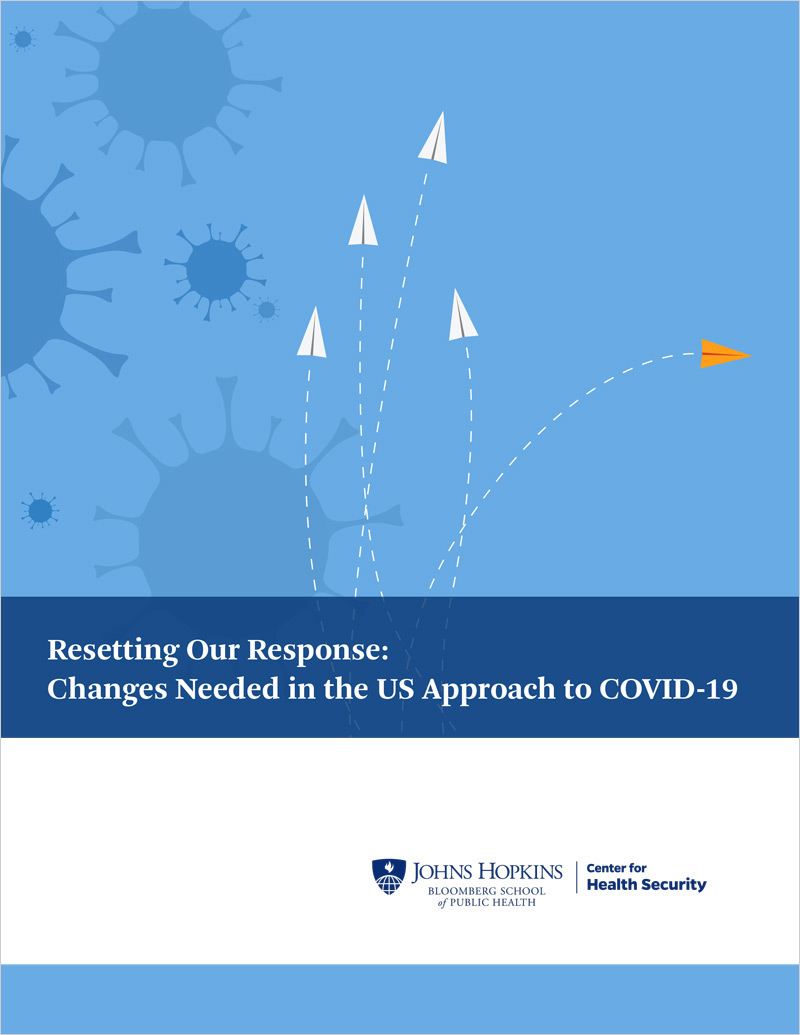New Report: Resetting Our Response: Changes needed in the U.S. approach to COVID-19
Center News

July 29, 2020 – The Center for Health Security has released a new report describing concrete policy actions and reporting of data at the U.S. federal, state and local levels necessary to stem the rise of COVID-19 in the face of a resurgence that is stressing many sectors of society, from businesses to education to health care.
The United States is closing in on 150,000 deaths due to COVID-19. “Unlike many countries in the world,” say the authors, “the United States is not currently on course to get control of this epidemic. It’s time to reset.”
According to the report, “Resetting Our Response: Changes needed in the U.S. approach to COVID-19,” the COVID-19 pandemic is a challenge far beyond what any city, state, territory, or community can handle alone. The authors call for collective action that will generate the changes needed to gain control of this epidemic to avoid cascading crises in the healthcare system and economy and save great numbers of lives throughout country.
The 10 recommendations are:
- Encourage and, when appropriate, mandate nonpharmaceutical interventions, including wearing masks and physical distancing.
- Postpone higher-risk activities and close facilities in jurisdictions where the epidemic is worsening; Reinstitute stay-at-home orders for up to two weeks in jurisdictions where healthcare systems are in crisis.
- Bolster PPE supply chains and stockpiles and make information about the PPE manufacturing base and supply chain publicly available, with the goal of transparency around this paucity and expanding PPE availability as much as possible.
- Bolster test supply chains, plan for shortages, and collaborate with states and commercial laboratories to expand capacity and improve test turnaround times.
- Conduct and make public detailed analyses of epidemiologic data collected during case investigations and contact tracing.
- Curate and fund a rapid research agenda to cope with major challenges that have arisen.
- Scale up contact tracing programs and continue to improve participation and performance.
- Identify and disseminate best practices for improving the public health response.
- Plan for an eventual national vaccine, including production, allocation, distribution, and community engagement, to ensure a successful rollout.
- Develop policies and best practices to better protect group institutions.
You can access the new report here.
